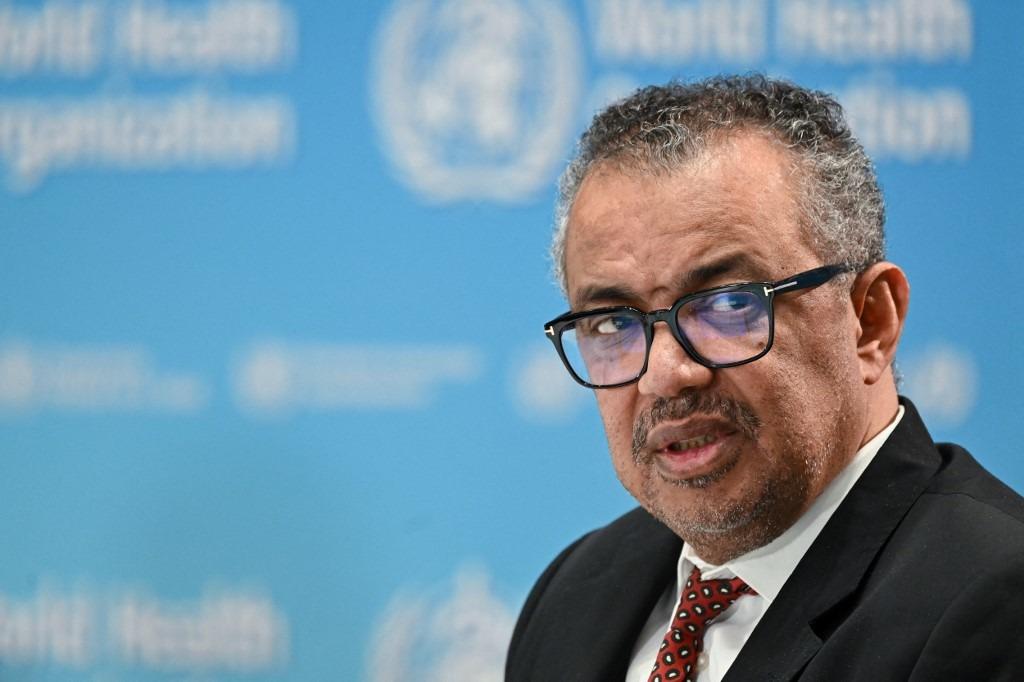 World Health Organization chief Tedros Adhanom Ghebreyesus speaks at a press conference on the World Health Organization's 75th anniversary in Geneva, on April 6, 2023. (PHOTO / AFP)
World Health Organization chief Tedros Adhanom Ghebreyesus speaks at a press conference on the World Health Organization's 75th anniversary in Geneva, on April 6, 2023. (PHOTO / AFP)
GENEVA - The head of the World Health Organization urged countries on Monday to carry out reforms needed to prepare for the next pandemic, hailing their "historic" decision to accept a major budget hike at the UN agency's annual assembly.
Speaking at the assembly weeks after ending the global emergency status for the COVID-19 pandemic, Tedros Adhanom Ghebreyesus said it was time to advance negotiations on preventing the next pandemic.
The 10-day annual World Health Assembly in Geneva, which coincides with the WHO's 75th anniversary, is set to address global health challenges including future pandemics and eradicating polio
"We cannot kick this can down the road," the WHO director-general said in a major address to the agency's member states, warning that the next pandemic was bound to "come knocking".
"If we do not make the changes that must be made, then who will? And if we do not make them now, then when?" he said.
ALSO READ: Animal health body urges bird flu vaccination to avoid pandemic
The 10-day annual World Health Assembly in Geneva, which coincides with the WHO's 75th anniversary, is set to address global health challenges including future pandemics and eradicating polio.
The WHO's 194 member states are now drafting a pandemic treaty which is up for adoption at next year's assembly.
"A commitment from this generation (to a pandemic accord) is important, because it is this generation that experienced how awful a small virus could be," said Tedros.
At the same meeting, countries approved a $6.83 billion budget for 2024-25 - a decision that tested national commitments to fixing a WHO funding model which was seen as too small and overly reliant on the vagaries of donors.
The budget includes a 20 percent increase in member states' mandatory fees under a preliminary agreement reached last year in exchange for a commitment to reforms including on budget, governance and finance policies.
ALSO READ: Chile detects first human case of H5N1 bird flu
US Assistant Secretary for International Organization Affairs Michele J. Sison said future increases would be "contingent upon continued reform progress". Central and South American countries also called for the WHO to address what they described as chronic underfunding of their region.
Pandemic treaty
The new pandemic treaty under negotiation seeks to shore up the world's defenses against new pathogens following COVID-19 which has killed nearly 7 million people.
The WHO already has binding rules known as the International Health Regulations, which in 2005 set out countries' obligations where public health events have the potential to cross borders. These include advising the WHO immediately of a health emergency and measures on trade and travel.
Adopted after the 2002-2003 SARS outbreak, these regulations are still considered appropriate for regional epidemics, such as Ebola but inadequate for a global pandemic. These regulations are also being reviewed in the wake of COVID-19.
For the new more wide-reaching pandemic accord, member states have agreed that it should be legally binding for those who sign up, overcoming early reservations from the United States.
READ MORE: Cambodia: Recent bird flu cases not transmitted by humans
It would be only the second such health accord after the 2003 Framework Convention on Tobacco Control, a treaty which aims to reduce smoking via taxation and rules on labelling and advertising.
However, the proposed treaty has come under fire on social media, mostly from right-wing critics warning it could lead to countries ceding authority to the WHO. The body strongly refutes this, stressing that governments are leading the negotiations and are free to reject the accord.
The European Union, which proposed the accord, is seen as its biggest backer. Developing countries, especially in Africa, are keen to use the negotiations to secure better access to vaccines, following allegations of "vaccine apartheid" from Tedros.


